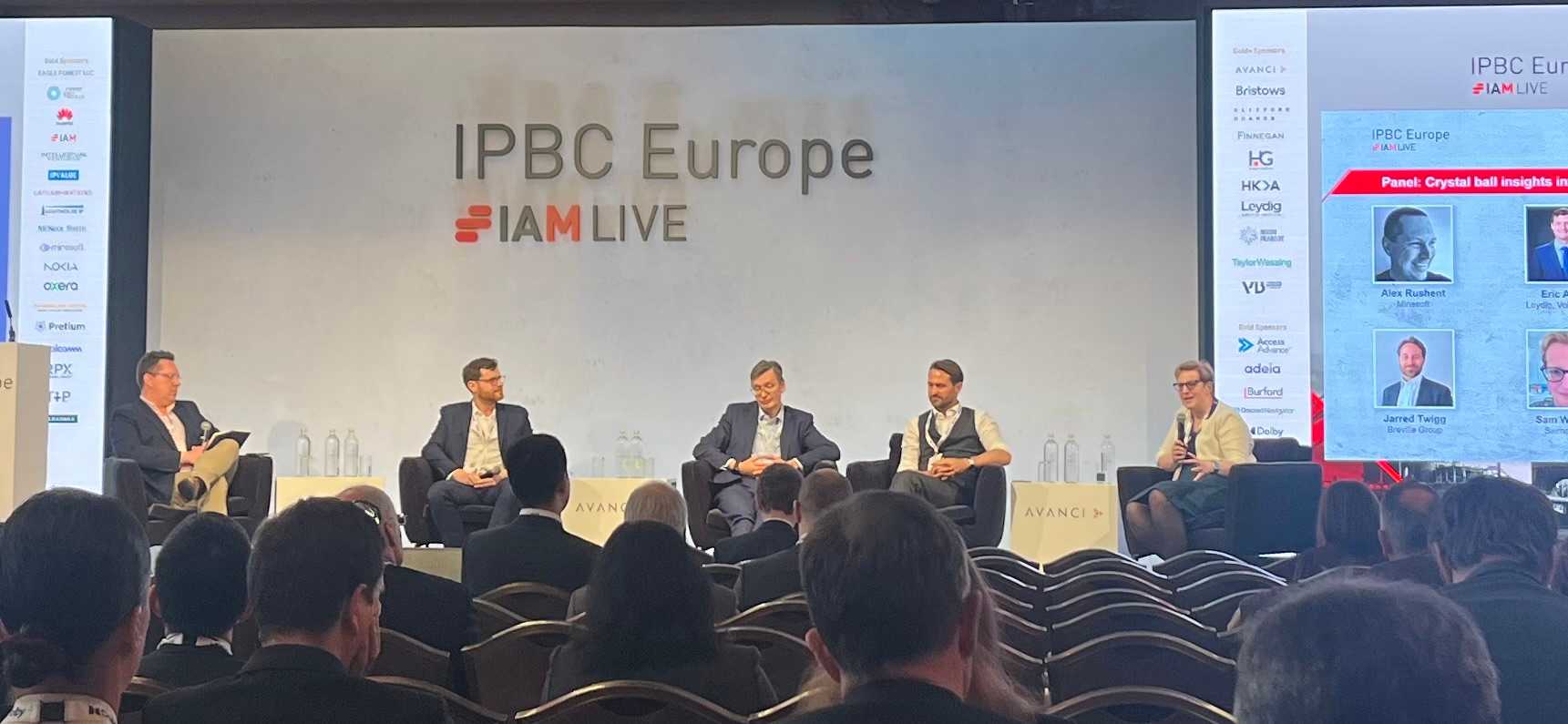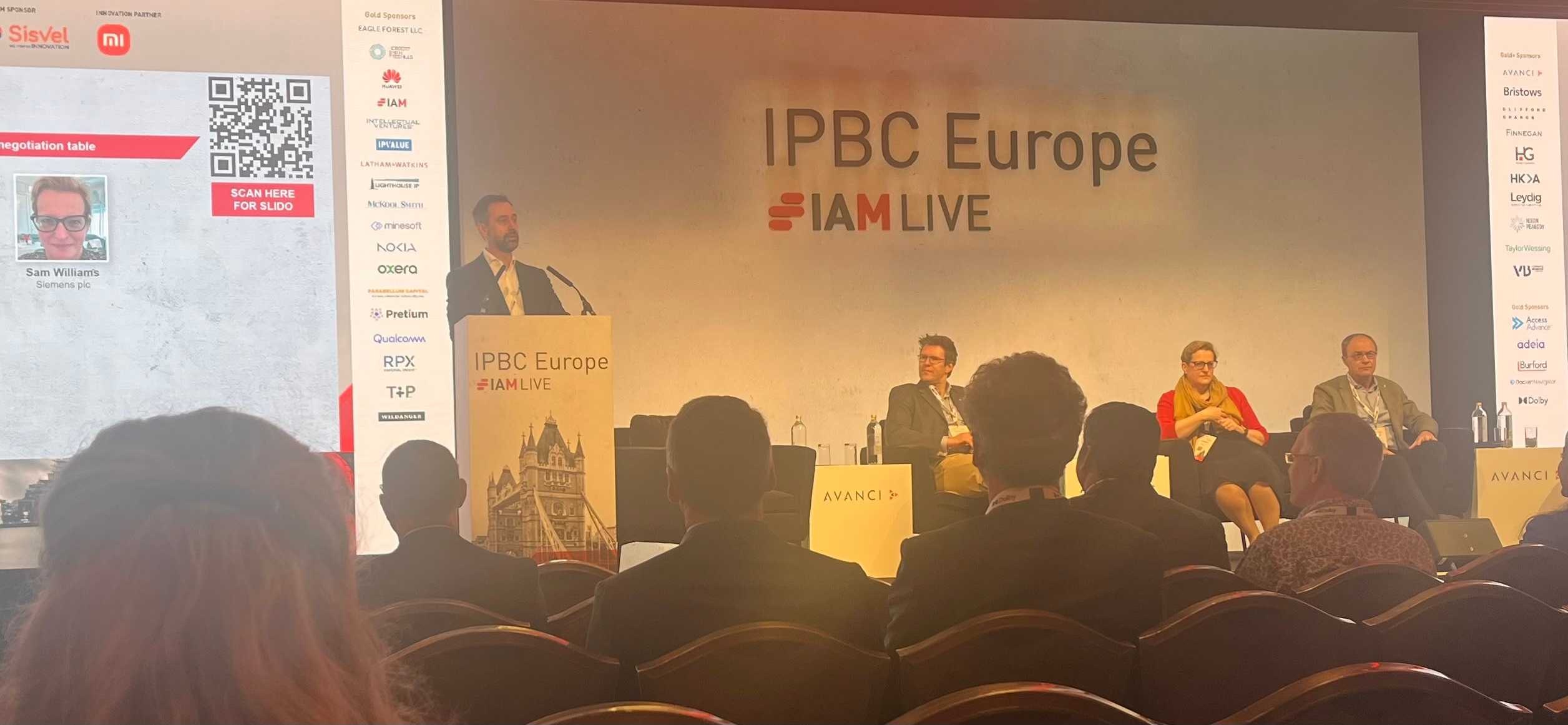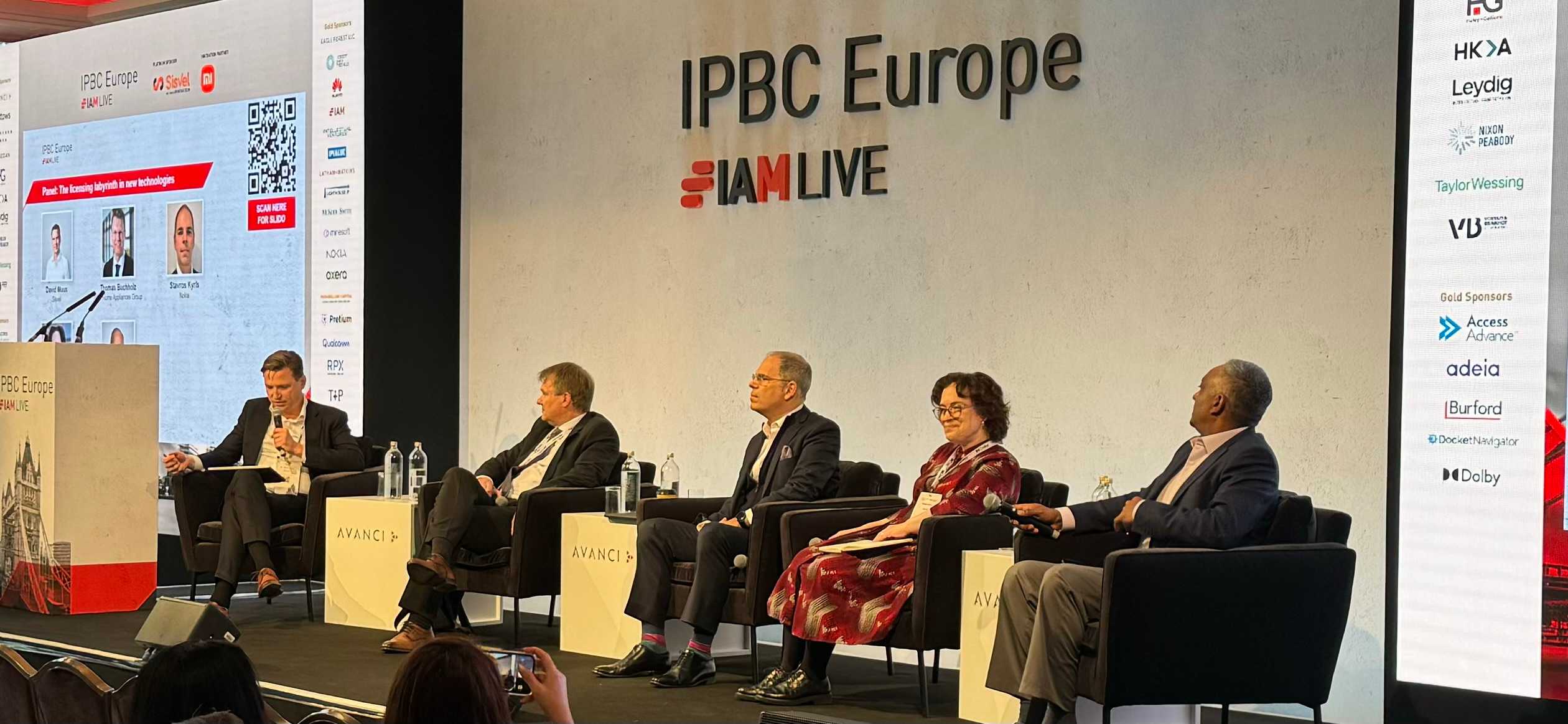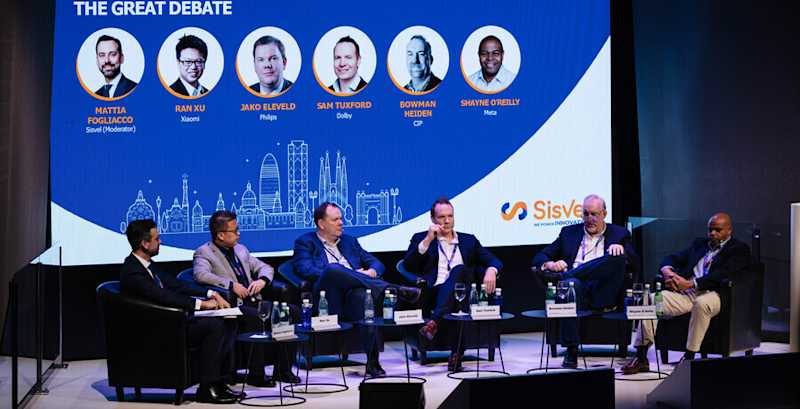UPC, UK and US take centre stage at IPBC Europe
There were multiple debates for the 400+ delegates at this year’s event in London to enjoy but the growing prominence of the EU court, British judges’ handling of FRAND disputes and what the Trump administration might mean for IP kept coming to the fore.
By Joff Wild
It was a tale of three jurisdictions at IPBC Europe in London last week. Although any number of important and interesting subjects were covered at the event, which took place at the Royal Lancaster Hotel and attracted over 400 delegates, the Unified Patent Court (UPC), the UK and the US were the main focus of attention. The first two as a result of a string of important decisions, the latter because of the perceived challenges the new Trump administration may pose for IP holders on multiple fronts.
The power of the UPC
Across both days, it was made very clear just what a gamechanger the UPC is becoming. The decisions already handed down show a court able to act at speed with injunctive relief very much part of the offering for successful plaintiffs.
The danger this presents to defendants was most vividly illustrated by Oppo's head of patent litigation and licensing, Julia Zhu. She made clear just how big a deal the UPC is for technology implementers. With great power comes great responsibility, she observed during the plenary session “Winning moves at the UPC” and asked for the court's judges to take a balanced approach to needs of parties in a dispute.
Many will remember that Oppo pulled out of Germany on the back of an injunction issued in a patent case there. On its own, the company felt the German market was small enough to justify such a move. It is a very different matter when an injunction can cover all 18 EU member states that are part of the UPC system.
In the same session, UPC Munich local division presiding judge Matthias Zigann made several interesting observations. Perhaps the most notable was the scepticism he expressed over the court being able, let alone willing, to set global FRAND rates in SEP disputes. Some have suggested this might be possible, but Zigann was doubtful. The amount of evidence required to set a rate is unlikely to be compatible with the “ambitious timeframes” the court works to, he explained. Instead, judges are likely to focus on whether the rates offered by plaintiffs are FRAND.
In other comments, Zigann did not rule out the possibility of an implementer being able to proactively take action to get a FRAND licence. It's difficult to talk about in the abstract and would depend on the arguments presented, he stated. He also asked plaintiffs to file cases in English as it helps the whole system; and advised them to look beyond Munich as the quality of all UPC divisions is very high. Whether the latter point was about the Munich court’s increasing workload or out of concern the UPC may start to be seen as a German rather than a pan-European court was not discussed.
The UK strikes out alone
While the UPC is generally regarded as a court where plaintiffs go to get injunctions, it seems the impression the UK courts want to give in FRAND cases is that they are there to solve business disputes. A number of decisions handed down over recent years have reinforced that, with the Court of Appeals judgments in Panasonic v Xiaomi and Lenovo v Ericsson being the most recent examples. What the UK courts might see themselves as, though, is not necessarily how they are perceived by others.
It's fair to say that there was a level of bemusement expressed in several sessions about the Lenovo v Ericsson decision, for example. In a one-on-one interview with Nixon Peabody partner Sasha Rao, Nokia Technologies’ Chief Licensing Officer Susanna Martikainen made clear she was not impressed with the interim licence the ruling in the judgment. It’s concerning, she said, when a defendant can use one court to undermine the process in another. She also took issue with the “split the difference” approach to the pricing of the licence. It means, she argued, Lenovo would get to carry on using the SEPs in question without paying a FRAND rate.
These issues and others were explored in an excellent plenary on the final day of the conference, “Testing the limits of SEP enforcement in the UK”. Moderator Naomi Hazenberg of Bristows led a panel made up of Northwestern University’s Justus Baron, Paul Meyer from HKA, Teo Taponen of InterDigital and HP’s Pippa Wheeler through topics including comity, interim licences, rate setting and forum shopping.
While the transparency of the UK courts’ decision making was widely praised and their willingness to set a FRAND rate drew some support, there was a sense of overreach around some recent judgments. Hazenberg was confident that the UK Supreme Court would agree to hear an Ericsson appeal of the Lenovo decision.
A new and challenging US market
The final session of the conference was entitled “Crystal ball insights into the global patent landscape”. While it was ostensibly about global developments, the majority of the discussion revolved around the US and, more specifically, what the new Trump administration might mean for IP holders – especially those based outside the country. It was explosive stuff.
Sam Williams of Siemens plc was very interesting on tariffs and their potential to disrupt supply chains, customers and revenue flows. Should this affect approaches to filing and portfolio management, she wondered. Jarred Twigg of the Breville Group spoke about the possibility of disruptive change at a USPTO under John Squires, who has been nominated as the agency’s next Director and has a strong background in IP monetisation. For his part, Leydig, Voit & Mayer partner Eric Arnell worried that, given examiner attrition rates, resolving backlog issues in the short to medium turn would prove next to impossible unless there is rapid technology adoption - or applications are just waved through.
In light of the aggressive America First rhetoric coming out of the administration, Canon’s Matthew Hitching expressed fears there may no longer be a level playing field for foreign applicants at the USPTO or for litigants in US courts. The general sense among panellists was that being a non-US patentee may become a lot more problematic.
Is the rule of law under threat in the US? asked moderator Alex Rushent of Minesoft. Yes, it may well be, Arnell responded. Whether this turns out to be the case remains to be seen, but that the question was asked in the first place – let alone not immediately dismissed – shows how established ways of looking at the world’s biggest and most important IP market have changed in just a few short weeks.
What is happening is clearly causing at least some corporate IP counsel to think very carefully about how far the US can and should be part of their IP strategies. Is this a time to wait and see or to take decisive action to derisk and reduce exposure to the American market? What does this all mean for the value of US patents? These are big questions that IP professionals could never have imagined asking themselves, let alone talking about in public, at the start of the year. It was extraordinary to hear.
A panel on global developments tackles questions that would have been unthinkable just weeks earlier
Plenty more
There were plenty of other issues to keep delegates thinking over the course of the two days – including two sessions moderated by senior Sisvel personnel.
The firm’s President and CEO Mattia Fogliacco led an expert forum plenary in which panellists Douglas Gordon (Leonardo UK), Sam Williams (Siemens plc), Koenraad Wuyts (KPN) and Cheng Yu (Xiaomi) discussed various dealmaking scenarios, such as what transparency means on both sides of the table, how to reach agreement on royalty pricing and when it is time to resort to litigation. It was enlightening stuff.
Sisvel's Mattia Fogliacco moderates an expert forum on dealmaking
For his part, our head of licensing programmes David Muus took charge of a breakout entitled “The licensing labyrinth in new technologies”, in which a stellar panel comprising Thomas Buchholz of BSH Home Appliances Group, Nokia’s Stavros Kyris, Tactotek’s Sonja London and Roy Maharaj of Ericsson discussed the challenges of licensing into new areas such as the IoT, in which there are multiple verticals and any number of companies that have no real understanding of IP.
A panel led by David Muus of Sisvel discusses licensing challenges in new verticals
Sisvel was proud to be the Platinum sponsor of IPBC Europe 2025. Congratulations to the IAM team for putting on such a strong event. We look forward to the next one in Paris in March 2026, not to mention IPBC Global in Boston this June and IPBC Asia in Tokyo later in the year.
Joff Wild is Head of Content and Strategic Communications at Sisvel
This article was prepared by him in a personal capacity. The opinions expressed within it are the author’s own and do not necessarily reflect the views of Sisvel. The content is for informational purposes and should not be taken as legal advice.





